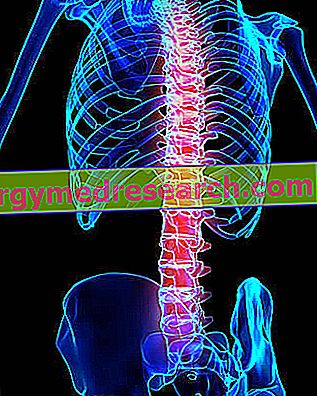Related articles: Emphysema
Definition
Pulmonary emphysema is a progressive disease of the lungs, which results in shortness of breath and reduced ability to sustain effort. In pulmonary emphysema, the alveoli (small bags used for exchanges between air and blood) appear dilated, not very elastic and damaged; consequently, the surface area for the exchange of oxygen and carbon dioxide is reduced and in an advanced stage the respiratory acts can become extremely tiring (difficulty in expelling the air). The good news is that emphysema develops very slowly over the years; the bad one is that the first symptoms arise when the disease is already quite advanced and irreversible damage.Most common symptoms and signs *
- Respiratory acidosis
- Anorexia
- Asthenia
- Catarrh
- Cyanosis
- Dyspnoea
- Chest pain
- Pain in the sternum
- Papilla edema
- hemoptysis
- hemothorax
- Shortness of breath
- Atrial fibrillation
- Hypercapnia
- Hypertrophy of the accessory muscles of respiration
- Thinness
- Weight loss
- pneumothorax
- Polycythemia
- Paradoxical pulse
- presyncope
- Wheezing breath
- Reduction of respiratory noise
- Blood in Saliva
- Barrel chest
- Cough
Further indications
The symptoms of emphysema vary in relation to the extension, to the evolution of the morbid process and to the possible association with chronic bronchitis. If this is absent, the cough is not productive (the massive elimination of phlegm is missing), while the subjects in whom chronic obstructive bronchitis prevails suffer from abundant sputum.



